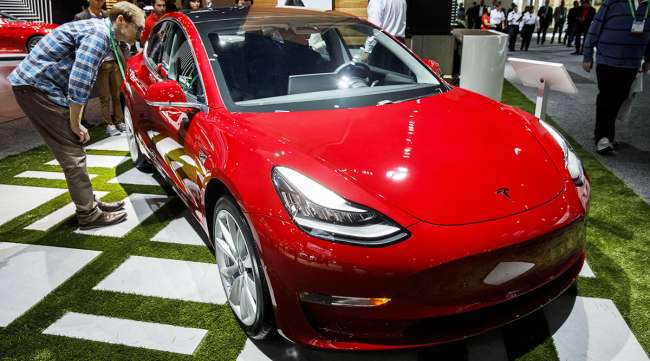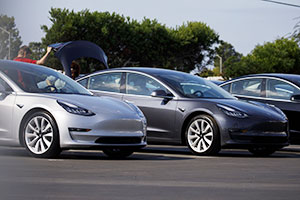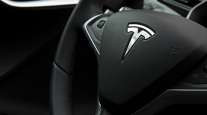Tesla Said to Be Close to Model 3 Approval for Europe Sales

Tesla Inc. has yet to obtain approval from authorities in Europe to begin selling the Model 3 in the region, though this isn’t expected to impede the carmaker from starting deliveries next month, according to a person familiar with the matter.
The company has been working in close collaboration with authorities and expects to receive certification after some personnel return from the holidays, said the person, who asked not to be identified because the deliberations aren’t public. This timing is in line with what Tesla has been targeting for months, the person said.
Starting Model 3 deliveries in Europe is a key priority for CEO Elon Musk. He’s pointed to sales of the sedan in Europe and China as a main reason he isn’t concerned about any potential setback caused by the U.S. federal tax credit toward Tesla purchases halving to $3,750 as of Jan. 1.
Tesla is targeting the BMW 3-Series and VW Golf with its Model 3. While pickup trucks and SUVs account for about 70% of U.S. vehicle sales, Europeans still favor cars.
“We’re excited to bring the Model 3 to Europe and China early next year, given that the market for midsize premium sedans in those regions is even larger than in North America,” Musk said during the October earnings call.

Patrick T. Fallon/Bloomberg News
Tesla previously obtained approval for safety, noise, environmental and production requirements through the Dutch regulator known as RDW. Under European Union rules, once an automaker’s new vehicle has been certified by one national authority, the approval is applicable across the trade bloc.
The company has started receiving systems-type approval for components of the vehicle and is awaiting whole-vehicle-type approval, which is expected to be imminent, the person said. Thérèse de Vroomen, a spokeswoman for RDW, said the vehicle authority doesn’t provide information about its type of approval process.
Concerns about the shrinking U.S. tax credit and Tesla’s decision to cut prices by $2,000 to partially offset the lower incentive sent the carmaker’s shares plunging 9.7% during the first two trading days of the year. The company also reported fourth-quarter deliveries Jan. 2 that fell just short of analysts’ estimates.




